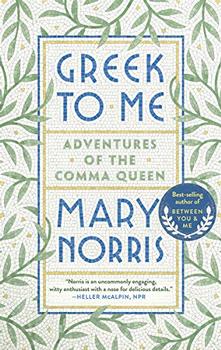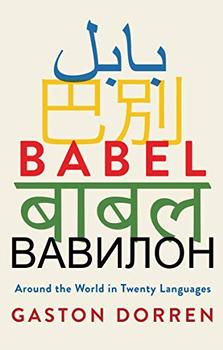Summary | Excerpt | Reviews | Beyond the book | Read-Alikes | Genres & Themes | Author Bio

How Every Letter Tells a Story
by Michael RosenHe might be best known for the children's classic board book, We're Going on a Bear Hunt, but it's a lifetime love of all things language that Michael Rosen, the British novelist, poet and broadcaster demonstrates in his latest book, Alphabetical, How Every Letter Tells a Story.
Arranged in twenty-six chapters organized from A to Z, Rosen has produced a fascinating and eclectic mix of history, humor and trivia about the English alphabet and how we use it.
In the first chapter, A is for Alphabet, Rosen traces the history of the written word beginning with the Egyptians, Phoenicians and Semites and moving on to the Greeks and the Romans. Adopting an accessible and conversational style he takes his reader on the journey through Old and Middle English, the Great Vowel Shift and the invention of the printing press. Each individual letter is also given its own potted history at the beginning of the corresponding chapter. The letter J, for example, Rosen tells us, is "the Johnny-come-lately of the alphabet," being regarded by Samuel Johnson in 1755 as a "lower order" letter and a variant of the letter I.
For the historically minded, chapters such as P is for Pitman, Q is for Qwerty and Z is for Zipcodes provide entertaining stories of the men who gave the world shorthand, the typewriter and postal and zip codes respectively. For the more humorously inclined, J is for Jokes contains example after example of alphabetical wordplay such as "Why can't pirates learn the alphabet? They get lost at C" and "Why has the alphabet got only twenty-five letters at Christmas? [sing] No-el, no-el, no-el, no-e-e-el." And in U is for Umlats, Rosen amuses with the story of how Häagen Dazs ice cream was named. Anyone wondering which two words contain all five vowels in alphabetical order will find the answer in G is for Greek.
Reading Alphabetical, it is impossible not to be impressed by how widely Rosen casts his net gathering alphabetical facts, trivia and jokes as well as writing intelligently and informatively about more serious topics such as the teaching of reading and the impact of new technologies on our use of language.
In T is for Txtspk, for example, he writes about telegrams and texting. In S is for Symbols, he outlines the history of semaphore, Morse code, Braille and the symbols ampersat @, ampersand & and the ubiquitous hashtag #.
With such a range of topics covered it is perhaps inevitable that some chapters will interest one set of readers more than others. Fortunately the structure of the book means that Alphabetical can be read in any order, while Rosen's informal style and use of anecdotes make the whole a cohesive experience for those who like to start at the beginning and finish at the end.
Some readers might find Rosen to be trying to do too much. At times the subjects he covers link only tenuously to the chapter letter. In I for Improvisation, for instance, he hops from animal noises to apostrophes to forms of address, seemingly at random. Inevitably some topics are touched on only lightly; for a more in-depth understanding of the history of the English language readers might want to turn to more specialist scholars of language such as David Crystal or Seth Lerer.
That said, Alphabetical is a pleasing and interesting read: the kind of book where a lover of language will find information entertainingly presented and where even the most knowledgeable will likely learn something new.
![]() This review was originally published in The BookBrowse Review in February 2015, and has been updated for the
February 2016 edition.
Click here to go to this issue.
This review was originally published in The BookBrowse Review in February 2015, and has been updated for the
February 2016 edition.
Click here to go to this issue.

If you liked Alphabetical, try these:

by Mary Norris
Published 2020
The Comma Queen returns with a buoyant book about language, love, and the wine-dark sea.

by Gaston Dorren
Published 2019
Witty, fascinating and utterly compelling, Babel will change the way you look at and listen to the world and how it speaks.
Your guide toexceptional books
BookBrowse seeks out and recommends the best in contemporary fiction and nonfiction—books that not only engage and entertain but also deepen our understanding of ourselves and the world around us.